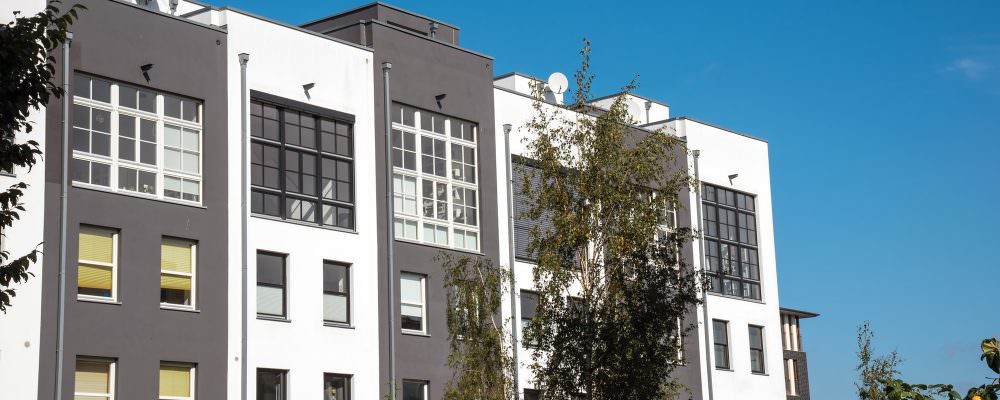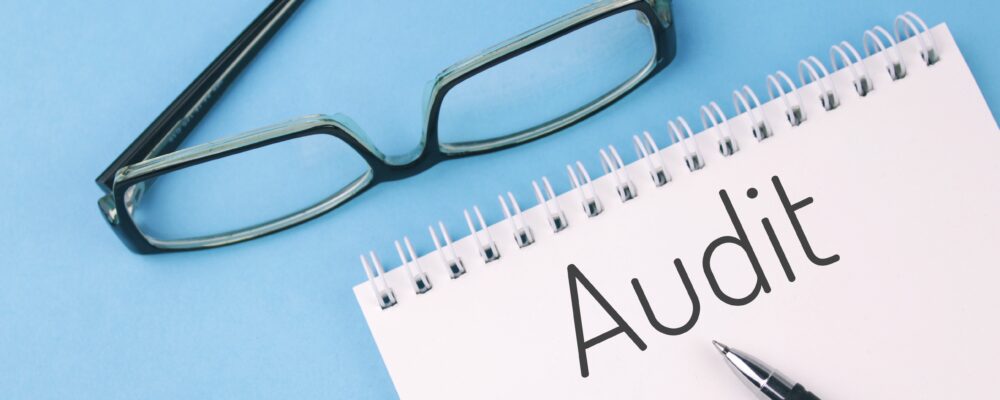Note: This article has been updated since it’s original publication.
Regulating Florida’s Condo Associations
They say truth is stranger than fiction, and that is never more true than in the CAM industry.
We’ve seen, smelled and cleaned it all up, and lived to tell the tale. This week, we take a look behind the curtain to see the seedy underbelly of the enforcement arm of Florida’s condo scene. Strap on your seat belts folks, we’re going for a ride on the truth train, and it’s going to be bumpy.
With more community associations than every other state combined, Florida is a behemoth in the community association management space. Lawmakers in other states look to Florida to set an example for how to legislate an industry that now represents one in every 4 homes in the country. Florida has more laws and regulations to govern community associations than any other state. (Although California isn’t far behind)
In fact, Florida has so many associations (1.4 million condos alone as of 2007) they’ve even gone so far as to break up community associations into two buckets, legislatively – Condo Associations are governed by one set of laws and HOAs by another – so they have twice as many laws to govern associations.
Despite all this legislation designed to protect Florida homeowners, something seems to be rotten at the core, according to a grand jury investigation report published last month.
The issue was brought before the grand jury of Miami-Dade County in response to increasing pleas from Florida condominium owners and managers, who felt their complaints were not being addressed. According to the report,
“With the increase in the number of properties has also come an increase in the number of problems for persons purchasing, living in, and managing condominiums. So too has there been an increase in the number of issues, problems and complaints lodged against the agency assigned to conduct investigations of fraud, wrong-doing and violations committed by condominium associations. That agency is the Department of Business and Professional Regulation, generally referred to as “DBPR.”
D-B-P-What?
As it relates to community associations, the Department of Business and Professional Regulation (DBPR) is charged with issuing and maintaining state licensing for professional community association managers. Not only do they issue these licenses to the nearly 20,000 licensed CAMs in the state, the agency is also responsible for investigating any complaints made against those CAMs, and levying punishments up to, and including, fines and license revocation.
The agency’s investigative arm is responsible for examining complaints against homeowners associations, licensed CAMs and management companies. Complaints can include accusations of fraud, delay, mis-management or violation of the laws.
The department has been under criticism for years by homeowners, association boards and professional CAMs who feel their complaints are not being properly addressed.
But enforcing regulations for community associations is just one barbie doll-sized hat of the many hats the DBPR wears. The agency is responsible for ALL state regulated professional licenses, including cosmetologists, barbers, veterinarians, real estate agents, talent agents, home inspectors, auctioneers, public accountants, electricians, restaurants, and many, many more professions. And just like CAMs, the DBPR has to investigate all claims made against any of these license holders.
With basically every single professional license falling under the umbrella of the DBPR, you can imagine that they have a lot on their plate.
Too Much Red Tape
Perhaps the sheer volume of complaints from all professions has led the agency to put a variety of obstacles in front of potential complainants, in an attempt to slow the onrush:
“The DBPR complaint process seems designed solely to screen out complaints. First, all complaints must be filed in writing, via mail or email. The complaints are all forwarded to Tallahassee where they are reviewed to determine whether the complaint is subject to division jurisdiction and to verify whether “sufficient documentation” has been submitted. Once pre-screened, the case is sent to a local area office for investigation. After the pre-screening one might anticipate that the investigation could begin.”
However, even cases that are officially assigned to an investigator are being screened again by the investigator, often resulting in letters of closure of the issue with absolutely no investigation into the complaint itself.
Woefully Undermanned
According to the grand jury’s report, the first issue facing the department is the massive disparity between the increasingly larger condominium population and the handful of investigators available to investigate complaints.
“Unfortunately, the Division of Regulation has only 53 available investigators throughout the state to regulate the CAMS as well as the thousands of other professionals in unrelated fields.”
A public records request clarified how many of those 53 were examining condominium based complaints:
“The DBPR, in response to a public records request, reported that there are thirty-three (33) investigators in the entire state ( 67 counties) to investigate complaints by condominium owners.”
Thirty three? In the entire state, for roughly 2 and a half million condominiums and nearly 20,000 licensed CAMs? The number seems laughably small. Certainly these investigators are kept busy:
“A review of a publicly available database of the Florida Division of Administrative Hearings (cite) shows hundreds of administrative disciplinary actions against licensed and unlicensed property managers, which indicates that the fifty-three (53) available investigators are very active.”
A Lack of Basic Investigative Skills
For such an active bunch, perhaps the investigators can be excused from an expectation of keeping specific records as to the actions they take:
“According to DBPR, the Department does not maintain specific records of the actions brought against licensed and unlicensed property managers so the work product of the Division of Regulation is not easily quantified.”
But even putting aside the lack of records, one would still hope that the investigators were at least actively investigating these accusations? Not so, according to the Grand Jury Report, which included a scathing review of the training techniques employed by the DBPR for their ‘investigators’:
“DBPR’s failure to demand that its investigators utilize, or comprehend, basic investigative techniques is breathtaking. According to the witnesses, the Bureau of Compliance does not have anyone that can take sworn statements. Based on the collective testimony of the DBPR witnesses, as to the investigators, we learned that there was no requirement of prior investigative experience and no formal investigative training was offered. The investigators learned “on the job” and appeared completely dependent upon their supervisors. The investigators expressed no eagerness to root out corruption or solve problems, and did not seem empowered to make any independent decisions. Our clear sense was that the investigators were more intent on closing cases than solving them.”
The grand jury report cited multiple specific examples of a failure to follow proper or even rudimentary procedures on the part of the DBPR investigators. Even the checks and balances put in place by the law failed to result in satisfactory results.
Who Watches the Watchers?
One source of check and balance is the Office of the Condominium Ombudsman, who, along with having the power to recommend legislative changes to the governor and congress, is tasked with providing independent election monitors to community associations upon request. Unfortunately, according to the report, these monitors are essentially powerless:
“These are ad hoc, nongovernmental positions with no official powers. Monitors do not control the location or manner of the election. They cannot collect the ballots or take statements to document potential fraud. The only true power they possess is the potential “threat” of the filing of a bad election report.”
It seems even a bad election report doesn’t have the desired effect, as the grand jury discovered in the case of one condo election where the election monitor was able to confirm the existence of fraudulent votes – where a notary had fraudulently notarized votes cast by homeowners who subsequently cast their own votes – effectively voting twice, even though the homeowners stated they had been out of town on the notarized date, and had never met the notary in question. Despite the admitted fraudulent behavior and the report of the election monitor, the DBPR investigator closed the case with no action taken, citing a lack of sufficient evidence.
“When questioned as to why the case was closed, the investigator kept repeating that there was “no evidence.” Significantly, in addition to the complaint, the investigator was given a copy of the election monitor’s report as well as the names of numerous condo unit owners whose votes were fraudulently cast. Yet, when asked, the investigator admitted that he never went to the scene and never interviewed witnesses, not even the election monitor.”
Inaction and Delay Rule the Day
While this grand jury’s report applied specifically to issues in Miami-Dade County, the group also referred frequently back to a similar investigation performed throughout the whole state in 2008 by a select committee of the Florida House of Representatives. Unfortunately, the issues in that report had escalated in the 9 years that followed:
“Sadly, nine (9) years later, this Grand Jury heard testimony from unit owners that mirror the complaints identified in the Select Committee’s Final Report. Unfortunately and almost irrationally, some of the problems seem to have gotten worse.” stated the grand jury’s report. “Based on our examination of the problems plaguing many Florida condominium associations, we believe the perceptions of “inaction and delay” [on the part of DBPR] in 2008 have become the realities in 2017. “
Ultimately, the grand jury concluded that the DBPR is not suited to handle the growing need for a true investigative arm to handle condo complaints:
“Our investigation reveals that for condo owners, there are a great number of problems. Unfortunately, the DBPR seems ill-suited to resolve, correct or prevent many of the recurring problems that have been brought to their attention.”
Recommendations
The grand jury offered 4 recommendations for the new agency that takes on the role:
-
The investigative arm of the new department must have investigators who have training and experience in basic investigative techniques (including criminal investigations);
-
The new department must have the authority to conduct criminal investigations;
-
The new department investigators must have the authority to take sworn statements and collect evidence;
-
The new department investigators must be given the authority to initiate investigations based upon their personal observations.
Based on all of the above information, these recommendations seem to be reasonable expectations for an agency that should be helping to ensure that this industry remains a positive force to help build a sense of community and preserve property values, instead of becoming a cesspool of fraud and misbehavior due to lack of proper oversight.
Unfortunately, the grand jury merely has the authority to make suggestions to Tallahassee. Ultimately, it is up to lawmakers there to modify the laws. It remains to be seen if this is something they are likely to do, or where it will go from there. Clearly the suggestions the House Select Committee made 9 years ago had little effect, but maybe this report will remind Florida’s congress of the problems and encourage them to make some serious changes.
Let us help you to eliminate many of your regular administrative tasks and save time. Watch a demo or reach out to a Sales Representative. We would love to show you more about these features and how they can help you make your days feel more relaxed.






